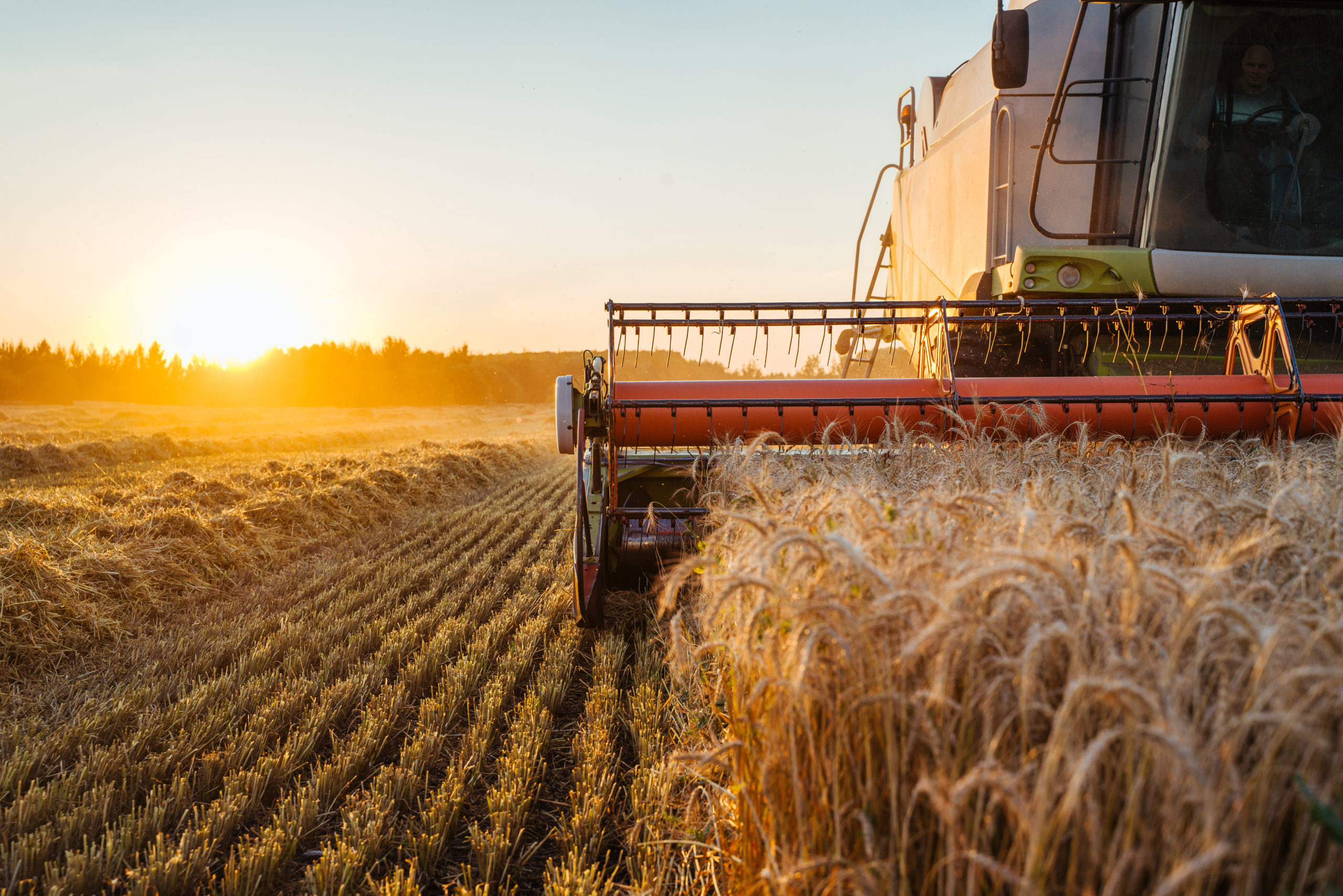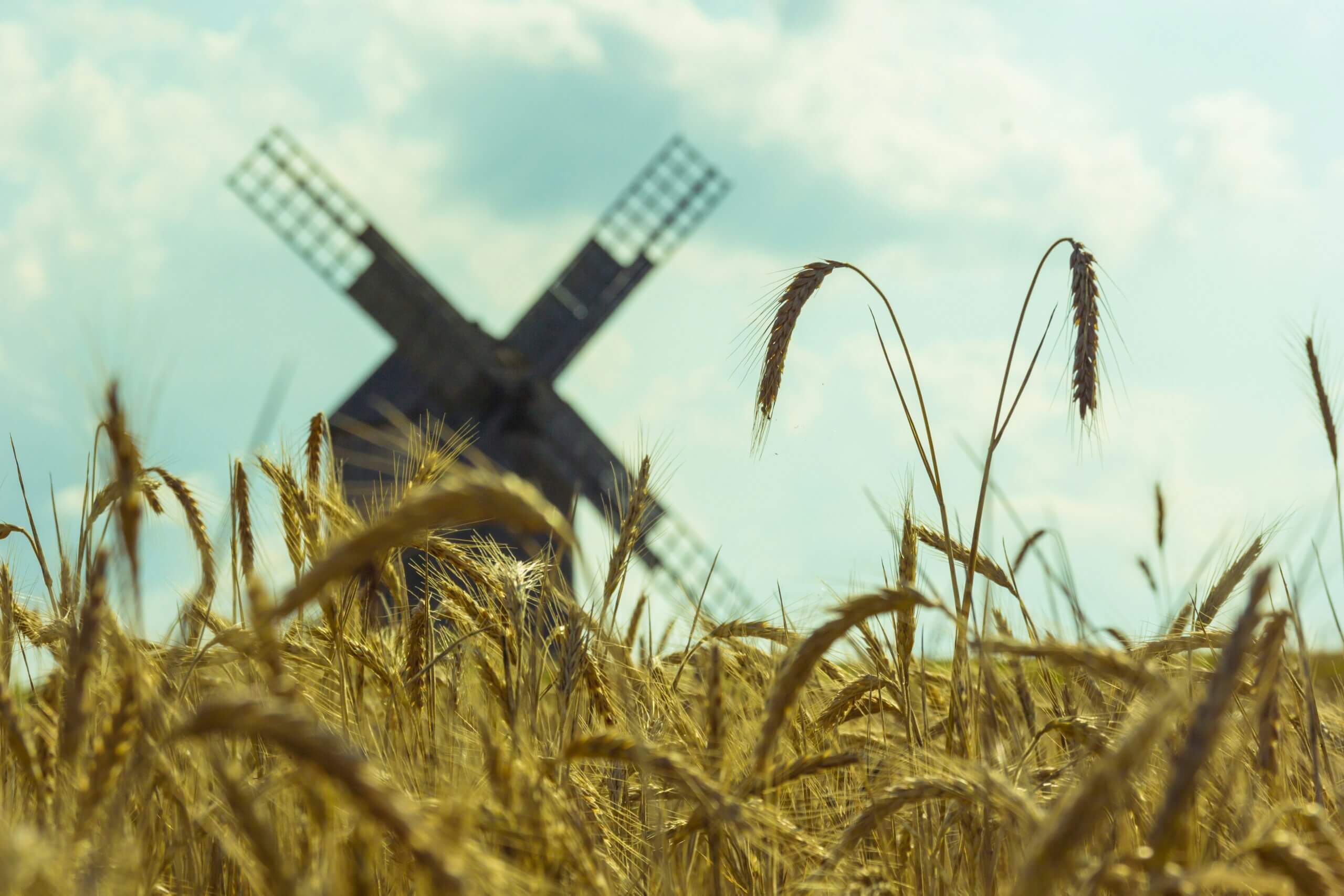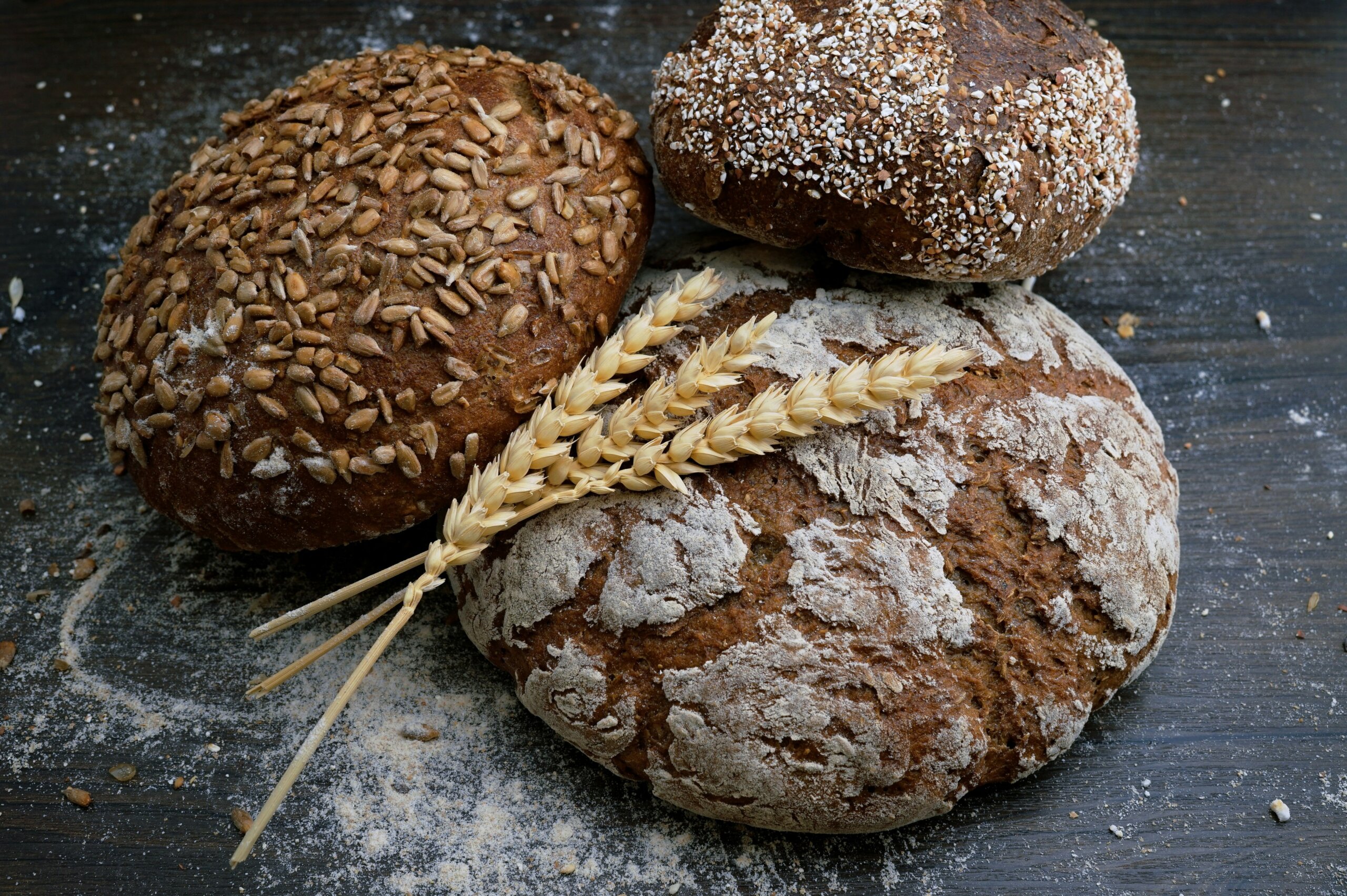USA and Canada

Rare inbound grain shipment recorded at Thunder Bay
Year-to-date grain shipments through Ontario’s Port of Thunder Bay are sharply lower than they were a year ago, the port authority said this week.
Thunder Bay’s total grain shipments from Jan. 1, 2021 to through the end of August were just a shade more than four million tonnes, the port authority said in a news release.
That’s a million tonnes lower than last year, but still slightly higher than the previous five-year average of 3.965 million tonnes.
“Year-to-date grain shipments are now one million metric tonnes lower than last year’s 25-year high volume, marking a return to normal volumes,” the port authority said.
Read More…
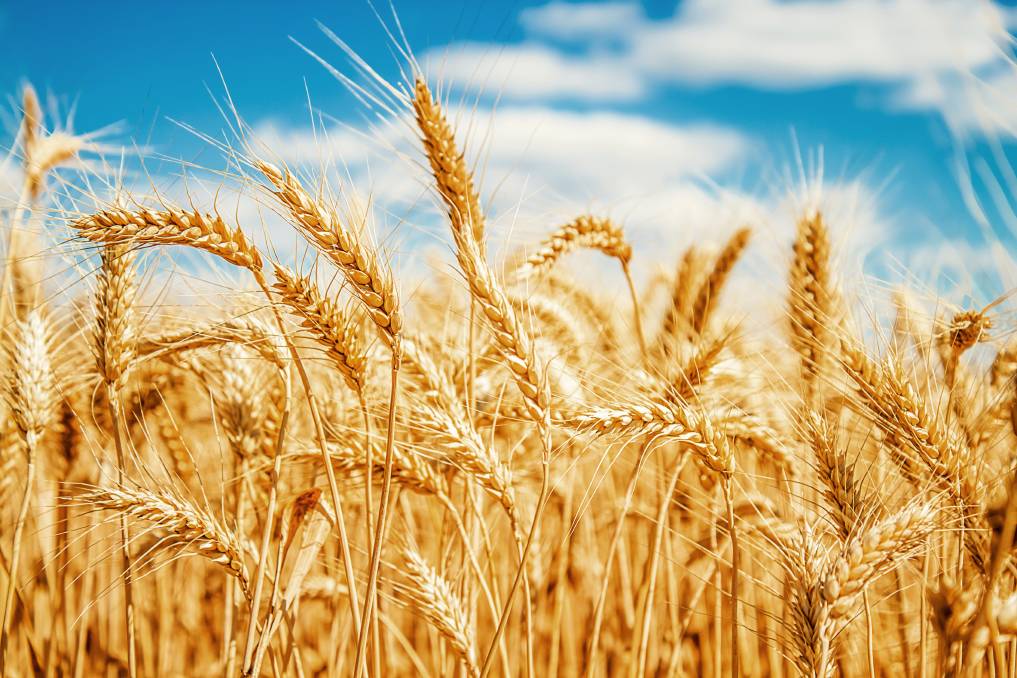
Drought Shrinks Canada’s Wheat Crop to 14-year Low
Drought has shriveled Canada’s wheat crop to its smallest in 14 years, and its canola harvest to a nine-year low, a government report showed on Monday. Parched soils and record-hot temperatures in Canada’s western crop belt sharply reduced farm yields of one of the world’s biggest wheat-exporting countries and largest canola-growing nation.
According to Reuters, the drought has forced millers and bakers to pay more for spring wheat, and drove canola prices to record highs.
Statistics Canada, in this year’s first report on crop production, estimated the all-wheat harvest at 22.9 million tonnes, down 35% from last year and slightly larger than the average trade expectation of 22.6 million tonnes.
Read More
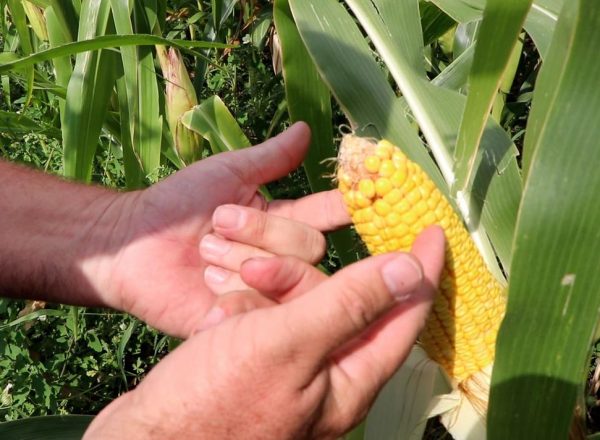
Southwestern Minnesota corn, bean yields could surprise
Dorian Gatchell, owner of Minnesota Agriculture Services of Granite Falls, Minnesota, discusses status of the corn and soybean crop after dry summer. He thinks strip-tillage systems can help row crop farmers to adapt to both excessive wet and dry seasons.
GRANITE FALLS, Minnesota — “Don’t give up on it, yet.”
That’s the message the 2021 soybean crop seemed to be putting out as August turned to September, said Dorian Gatchell, owner of Minnesota Agricultural Services LLC, of Granite Falls, Minnesota.
Gatchell talked about the dry year in an interview Aug. 24 for the 2021 Agweek Corn and Soybean Crop Tour. His agronomy consulting business covers clients in about a 30-mile radius around his hometown of “Granite,” where parents on both sides still farm.
Read More…
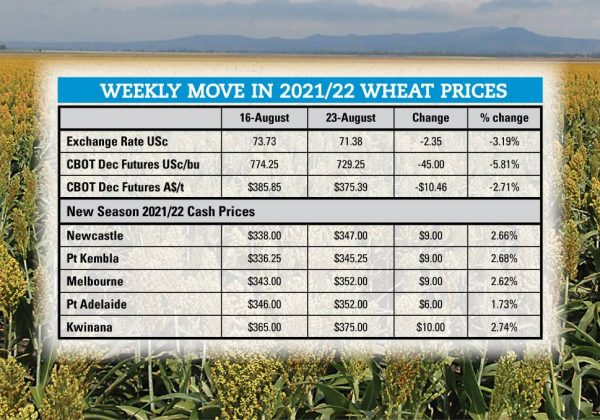
Strong crop prices bode well for fertilizer market: Nutrien
High grower margins in most parts of the world expected to be an incentive to increase acreage and focus on higher yields
Global demand for fertilizer products continues to be positive, despite reduced production forecasts in many parts of the world, according Nutrien’s chief economist and head of market research.
Jason Newton said continued uncertainty about the size of U.S. corn and soybean crops, combined with reduced production estimates for Russian wheat, Brazilian corn and all crop types in Western Canada, have provided strong market support for most commodities and will continue to do so for the rest of this year and into 2022.
Over the next month or so, farmers and grain marketers will be paying close attention to actual yield data out of the United States and Canada as harvest progresses, he added.

Farmers expecting good yields despite drought
As of the end of August, the Upper Thumb was still classified as being in a state of drought, with Huron County being in a moderate drought while Sanilac and portions of Tuscola, Lapeer, and St. Clair counties were dealing with abnormally dry conditions, according to the United States Drought Monitor. The majority of the Upper Peninsula is also experiencing various stages of drought.
The Upper Thumb, along with the majority of Michigan, has been experiencing various stages of drought over the past year, with the entirety of the Lower Peninsula experiencing moderate drought at the end of May.
Theresa Sisung, a field crop specialist with the Michigan Farm Bureau, said the area has ebbed and flowed with drought due to weather patterns over the course of this year. The dry conditions earlier this year were good for farmers planting crops since in years past, the spring and summer has been particularly wet.
Read more…
New Zealand
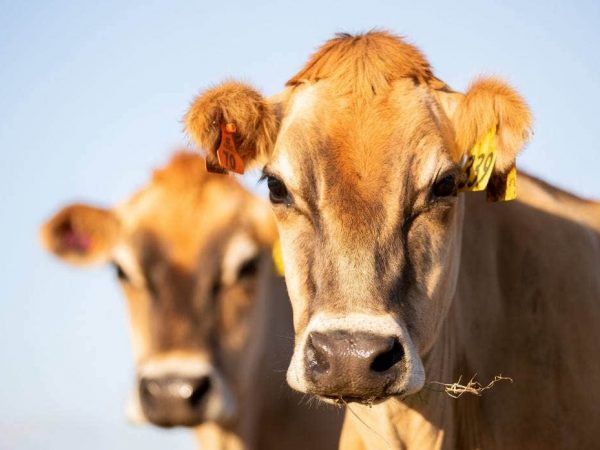
Dairy farmer says he’s not a polluter, but agrees to pay $103,500 ‘dirty dairying’ fine
A dairy farmer who allegedly said a council would never “get a dime out of me” for dirty dairy offending now says he will pay up, though he maintains he “never, ever polluted”.
Eketahuna farmer Derek Berendt and his company Huka View Dairies were fined $51,750 each in January after pleading guilty to allowing effluent to enter a waterway and keeping silage too close to water.
The fine of $103,500 is the largest imposed for ‘’dirty dairy’’ offending in the 2020-2021 year.
Berendt, who manages the farm about 7 kilometres north of Eketahuna, was charged by Horizons Regional Council after failing to heed warnings and abatement notices requiring him to comply with rules that protect waterways.
Read More here…

Guy Trafford explains how Fonterra and some other large exporters were saved from the worst of the freight stress by the Kotahi Logistics operation. He also shows that China’s pig virus crisis is far from over
Despite the issues of global logistics imposed upon exporters by the Covid-19 pandemic, Fonterra has managed to maintain volumes exported.
Fonterra has given much of the credit to their jointly owned (with Silver Fern Farms) logistics company, Kotahi. Set up in 2011, the company embedded some security of supply chain movement by signing long term strategic commitments with the Danish owned Maersk logistics company and the Port of Tauranga.
While most exports have been leaving via Tauranga, additional shipping through the ‘partnership’ has been able to relieve some of the South Island pressure as well.
Read More here…
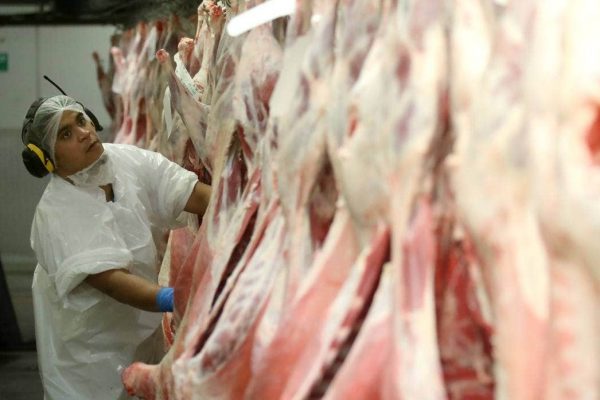
Red meat and co-products exports reach $870 million
New Zealand exported red meat and co-products worth $870 million during July 2021 – marking a 29% increase year-on-year, according to analysis from the Meat Industry Association (MIA).
More than 25,300 tonnes of sheepmeat and almost 50,000 tonnes of beef were exported with increases in the value of exports to all major North American and Asian markets.
This included a 1,425% increase in beef exports to Thailand compared to July 2020. Thailand was New Zealand’s tenth largest market for beef by volume during the month, at 347 tonnes.
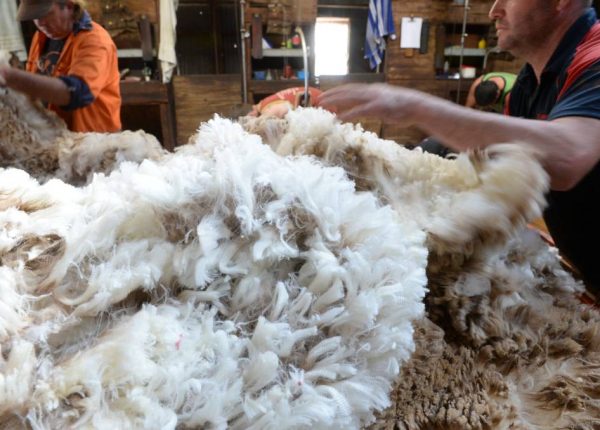
‘Farm Assured’ wool goes live
Wool growers certified to the New Zealand Farm Assurance Programme (NZFAP) can now promote and sell their wool as ‘Farm Assured’.
It follows the National Council of New Zealand Wool Interests (NCNZWI) adopting the New Zealand Farm Assurance Programme (NZFAP) as a national standard for wool in May.
Nick Beeby, chairman of New Zealand Farm Assurance Incorporated (NZFAI), which owns and manages NZFAP, said the milestone provides a substantial boost for the wool industry.
“This initiative provides the sector with an opportunity to add value to our national wool crop by locking in New Zealand’s unique farming systems and the natural and sustainable qualities of wool.
Read more here…
Australia
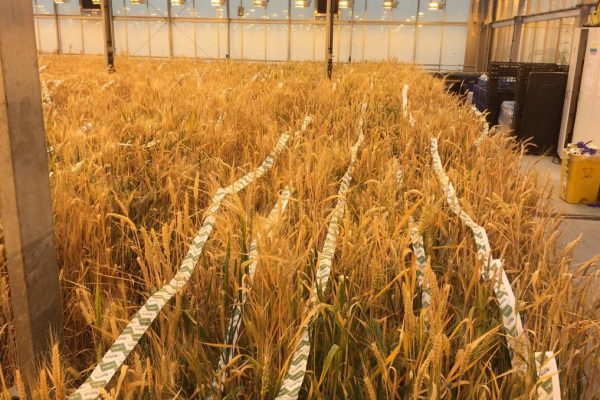
Wheat Quality Australia announce new milling wheat class Australian White Wheat on the way
THE AUSTRALIAN wheat industry is creating a new milling wheat class as it seeks to move beyond the classification system set up for the former single desk exporting system.
Wheat Quality Australia (WQA) announced this week that a new milling wheat class, Australian White Wheat (AWW) would be created.
WQA executive officer Hugh Robertson said the new classification was not a direct replacement for any existing groupings but rather would be created to give breeders and growers a flexible line that does not require the high protein levels of hard wheat but can still comfortably fit in human consumption markets.
Read more here…
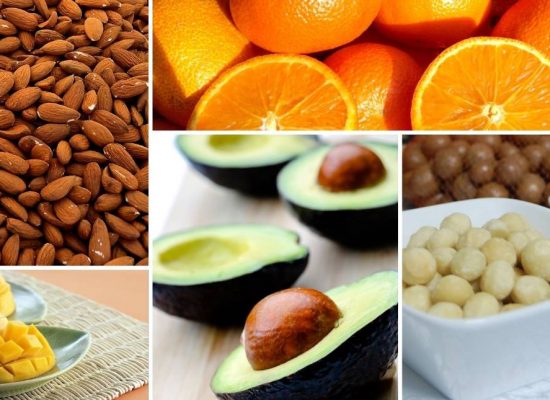
Hort Innovation puts $28 million into lifting tree crop productivity
ALMONDS, avocados, citrus, macadamias and mangoes will be the first crops to benefit from a major Hort Innovation productivity project.
The five-year $28 million National Tree Crop Intensification in Horticulture Program aims to give growers the tools needed to produce more fruit and nuts per hectare.
The program will develop systems to increase the intensity of orchards while improving production, quality and profitability outcomes for growers.
The five initial tree crops identified are regarded by Hort Innovation as important to Australian horticulture and have strong potential for improved productivity through crop intensification.
Read more here…

Farmers’ grain sales pick up ahead of harvest
Strengthening grain prices and last week’s rain have seen a spike in new crop farmer selling before the upcoming winter crop harvest.
A general 10-15mm of rain across the western Darling Downs and south western Queensland cropping regions early last week will ensure bumper wheat, barley and chickpea yields throughout southern Queensland. 2021 has been about as good as it gets for southern Queensland cropping areas, with most areas receiving 300-350mm of rainfall from March through to August.
Timing of the rain has been close to ideal. Soaking rains in autumn saturated paddocks and allowed for timely plantings with regular follow-up rainfall through the growing season. The ideal weather is being reflected in yield potential, with many southern Queensland farmers expecting record high yields that could match yields seen in northern NSW last year.
Read more here
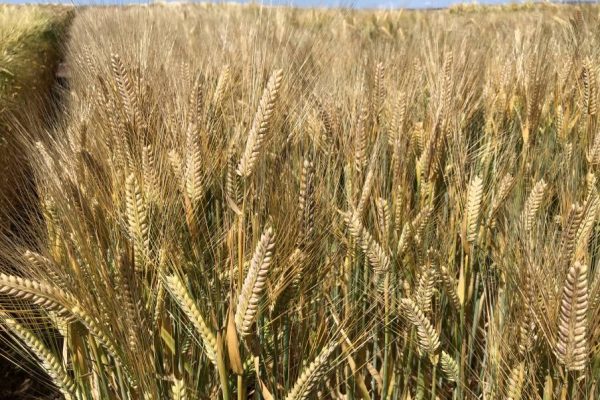
WTO barley decision breakthrough as appeals agreement reached
AN AGREEMENT between Australian and Chinese officials in their World Trade Organisation dispute over alleged Australian dumping of barley into the Chinese market means a meaningful finding is likely to be made.
A July 27 agreement to use a multi-party interim appeal arrangement (MPIA) means the loser cannot stall proceedings on a technicality.
And an Asia-Pacific international relations expert believes Australia is well placed to win the dispute, which dates back to 2018 when China launched an internal investigation into dumping claims, before hitting Australian barley exporters with 80 per cent tariffs in May 2020.
Jeffrey Wilson, research director at the Perth USAsia Centre, said he believed Australia was in the box seat in the dispute.
Read more here …
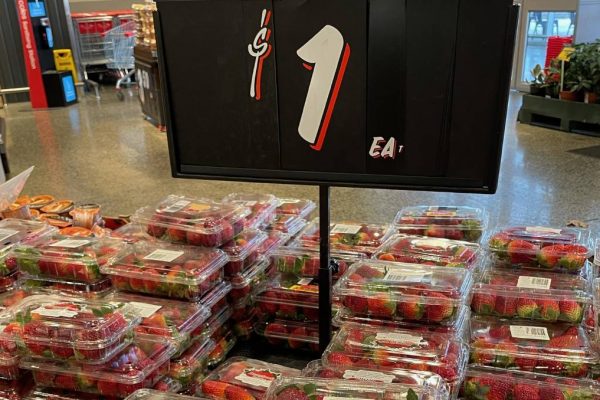
Strawberry growers hurt by lockdowns
Queensland strawberry growers are calling on shoppers to stock up as COVID-19 lockdowns push prices below the cost of production.
The state is the largest supplier of strawberries in Australia, producing 41 per cent of the nation’s fruit, but with parts of NSW and Victoria in lockdown, traditional buyers such as restaurants, cafes, fruit shops and farmers markets are not as active.
And with online buyers less likely to add strawberries to their cart, the oversupply is forcing down prices to as little as $1 a punnet at supermarkets like Coles, Woolworths and ALDI.
The cost of production in a normal year is $1.30 per 250 gram punnet.
Read more here…
South America
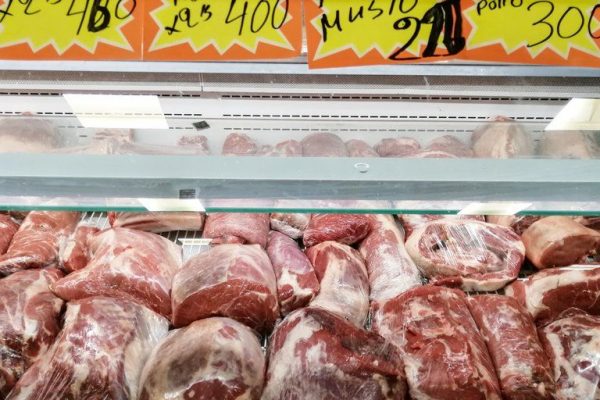
Argentina extends cap on meat exports, producers may halt all activity
The Government of Argentina has extended the cap on meat exports until October 31, claiming it was because the measure had been effective in helping curb domestic prices.
Agrifood producers gathered under the so-called Liaison Table are eyeing strikes and other measures which would likely not have a good impact on the administration of President Alberto Fernández less than two weeks before the Open Primary, Simultaneous and Mandatory elections scheduled for Sept. 12.
According to the new resolution published Tuesday in the Official Gazette, a 50% cap remains effective on all shipments abroad, based on figures from the second half of 2020.
Read More here…
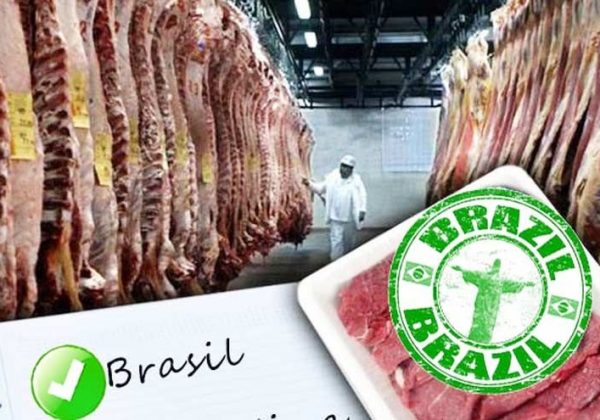
Cattle prices drop in Brazil as meat industry is idle waiting for tests from a suspected mad cow case
The suspicion of a possible mad cow case identified in the Brazilian state of Minas Gerais has further paralyzed activity in the country’s abattoirs, and consequently the price of live cattle. A release from the Association of Brazilian abattoirs in the representation of the industry confirmed the situation.
“The news of a mad cow case comes at a moment in which abattoirs are working with idle capacity to supply the domestic market and has further diminished the business of purchasing live cattle”, said Abrafrigo.
According to the industry the main concern is for those plants that export, mainly to China because there is a serious chance of a suspension of sales abroad this season.
Read More here

Argentina grains exports brought in $3 bln in August -CIARA-CEC
BUENOS AIRES, Sept 1 (Reuters) – Argentina’s oilseeds and grains exporters chamber said on Wednesday overseas sales brought in some $3 billion in August, boosted by high global grains prices, up 75% from the year-earlier period though down about 13% from the previous month.
The Argentine Chamber of the Oilseed Industry (CIARA) and the Cereal Exporters Center (CEC) said foreign currency income from farm exports in the first eight months of the year totaled $23.2 billion.
Argentina’s farm sector dominates the country’s exports and is critical to rebuilding battered foreign currency reserves that were drained over the last two years amid economic and debt crises, a plunging currency and high inflation.
Read more here
Food Updates

Why three glasses of red wine a week could lower your blood pressure
New research from Queen’s University Belfast suggests drinking a few glasses of red wine a week could be the key to reduced blood pressure.
Consuming more red wine, berries, apples, pears and tea on a regular basis could reduce your blood pressure, because of a key link with the human gut microbiome.
A higher intake of flavonoid-rich foods is associated with a clinically relevant reduction in blood pressure levels, partially explained by characteristics of the gut microbiome, according to new research led by Professor Aedin Cassidy from the Institute for Global Food Security (IGFS) at Queen’s University Belfast.
Prof Cassidy, chair of nutrition and preventive medicine at IGFS, was lead investigator in the study of over 900 adults which has been published in Hypertension, an American Heart Association journal.
Read more here…

Invest in alternative proteins to deliver on climate targets, says new report
A new report by the Social Market Foundation, an organisation which looks to promote cross-party cooperation in UK politics, has called for a similar level of focus to be applied to the alternative protein market as has been applied to developing alternative forms of energy.
Read more here…
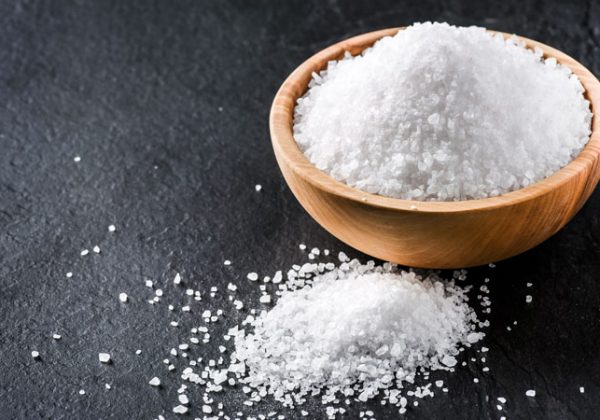
Salt switch reduces chance of stroke, says new research
Both elevated sodium intake and low potassium intake are associated with high blood pressure and an increased risk of cardiovascular disease and premature death.1 2 Salt substitutes, which replace part of the sodium chloride in regular salt with potassium chloride, have been shown to lower blood pressure3 but their effects on heart disease, stroke, and death had been uncertain. In addition, there had been concerns about causing hyperkalaemia in people with chronic kidney disease leading to cardiac arrhythmias and sudden death.
Read more here…

5 consumer behaviours that are reshaping food, beverage and supplement innovation
ADM has identified five changes in consumer behaviour which it predicts will last long after the pandemic is over, and will greatly influence the food, drink and supplement sectors.
Sixty percent of consumers worldwide are looking to improve their overall health and wellness over the next year, research from FMCG Gurus has identified.
We’re also witnessing consumers taking a more proactive approach to managing well-being with functional nutrition, ‘close-to-nature’ ingredients and foods that signal self-care.
Food processing company, ADM, has identified five health and wellness behaviour shifts that are creating opportunities for manufacturers to develop innovative, health-forward foods and beverages that support consumers’ evolving health and wellness needs.
Read more here…
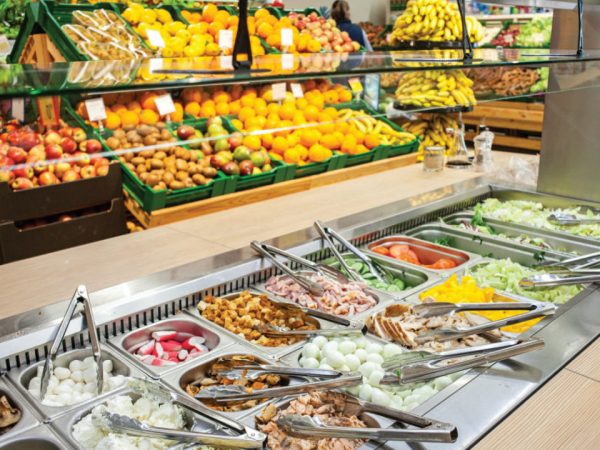
The salad bar comeback
Some stuck with salad but offered it in pre-packaged formats instead. Others put full meal solutions in their salad bars or repurposed them for packaged sides, meats, desserts or other items. A few took out salad bars altogether.
Depending on the guidance from local health authorities, some retailers opened the bars as early as last summer, whereas others are only reopening them now, Roerink said.
Read more here…
